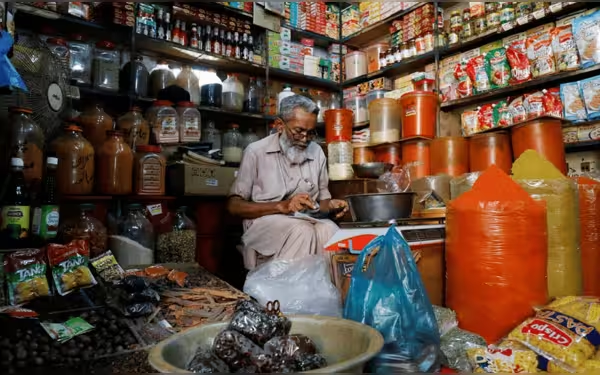Saturday, November 16, 2024 05:51 PM
Weekly Inflation in Pakistan Surges to 12.8 Percent
- SPI inflation rises 12.80 percent annually.
- Essential food prices, including tomatoes and onions, surge.
- Some staple prices, like wheat flour, decrease.
 Image Credits: dawn
Image Credits: dawnWeekly inflation in Pakistan rises to 12.8%, driven by soaring prices of essential goods, while some staples see a decline.
In recent weeks, the economic landscape of Pakistan has been marked by fluctuations in inflation rates, particularly concerning essential goods. The Sensitive Price Index (SPI), which is a key measure of short-term inflation, has reported a significant rise of 12.80 percent on an annual basis for the week ending September 26. This increase is primarily attributed to the soaring prices of perishable products, which have become a pressing concern for consumers across the nation.
According to data released by the Pakistan Bureau of Statistics, the SPI-based inflation has shown a slight week-on-week increase of 0.05 percent, reversing a previous decline. This upward trend highlights the ongoing challenges faced by households as they navigate the rising costs of everyday items. Notably, the prices of essential food products such as tomatoes, onions, and pulses have surged, contributing significantly to the overall inflation rate. Interestingly, while the prices of diesel and petrol have seen a decline, this has not been enough to offset the rising costs of perishable vegetables.
When examining the annual price changes, several items have experienced alarming increases. For instance, gas charges for the first quarter have skyrocketed by 570 percent, while the prices of pulse gram, onions, and tomatoes have risen by 60.21 percent, 51.72 percent, and 34.34 percent, respectively. Other notable increases include beef at 25.61 percent and powdered milk at 25.41 percent. These figures paint a concerning picture for consumers who are already grappling with the financial strain of rising food costs.
On the other hand, there are some silver linings in the data. The prices of certain staples have actually decreased, providing a bit of relief to consumers. Wheat flour has seen a significant drop of 38.12 percent, followed by petrol at 24.73 percent and diesel at 24.06 percent. Other items such as chillies powder and electricity charges have also experienced declines, which may help to balance out the overall inflationary pressures.
As the economic situation continues to evolve, it is crucial for consumers to stay informed about these changes. Understanding the factors driving inflation can empower individuals to make better financial decisions. While the rise in prices of perishable goods is concerning, the decrease in certain staple items offers a glimmer of hope. It is essential for policymakers to address these issues promptly to ensure that the basic needs of the population are met, fostering a more stable economic environment for all.













